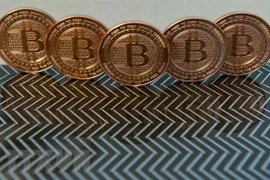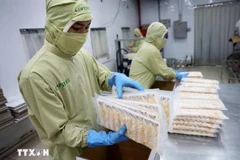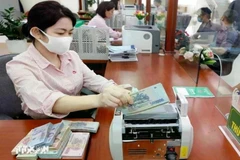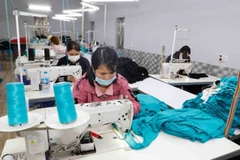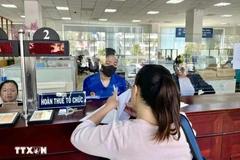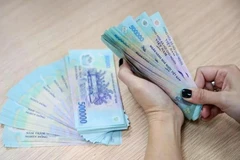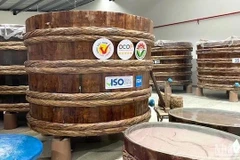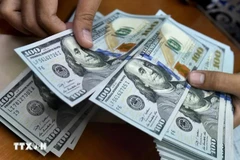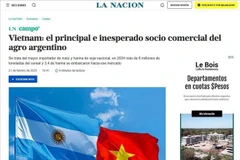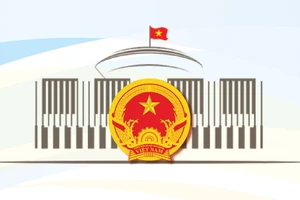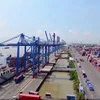Hanoi (VNA) – Building legal frameworks for digital assets is an urgent need to effectively manage this expanding market, according to experts.
Highlight in ministries, sector’s agenda
The development of legal frameworks for virtual and digital assets has become a pressing topic in the legislative work of various ministries and agencies. Recently, the Government has issued Resolution No. 27/NQ-CP from its regular meeting in January 2025.
Notably, the Government has instructed the Ministry of Finance to take the lead, coordinating with relevant agencies and local authorities to urgently complete the proposal to develop legal documents regulating digital assets, which include virtual assets and cryptocurrencies.
The Ministry of Planning and Investment is seeking feedback on a draft National Assembly resolution to establish a Regional and International Financial Centre in Vietnam. The draft touches on a controlled testing (sandbox) policy for fintech business models using technology in the financial sector.
Under this draft document, the regulatory authority for the financial centre would have the power to issue licenses, manage, assess impacts, and handle risk management for controlled testing in fintech operations, including exchanges dealing with cryptocurrencies. Transactions involving cryptocurrencies and digital currencies at the financial centre are set to begin on July 1, 2026.
In parallel, the Ministry of Information and Communications has introduced the concept of digital assets for the first time in its draft Digital Technology Industry Law, and proposed defining digital assets as a type of digital technology product. The Ministry is considering assigning the Ministry of Finance to lead the coordination for the development of regulations on managing digital assets and digital asset service providers.
These developments signal that the Government and various ministries are taking digital assets seriously.
Dealing with latent risks
According to a Chainalysis report, Vietnam ranked fifth globally in terms of interest in digital assets in 2024, third for usage of international trading platforms, and sixth for trading volumes on decentralised platforms. The report reveals that 17 million Vietnamese own digital assets, with the market value exceeding 100 billion USD. Unregulated digital asset transactions are contributing to the rise of a vast underground economy.
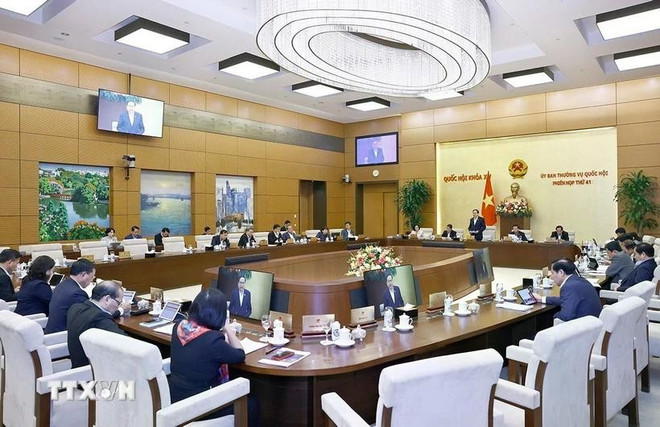
There is a pressing need for a transparent legal framework to ensure protection for developers and investors, and to bring clarity to the market, according to experts.
Tran Huyen Dinh from the Vietnam Blockchain Association said that Vietnam has a significant opportunity to benefit from revenue generated through digital asset transactions. If a personal income tax rate of 0.1% was applied, similar to the tax on stock trading, it could generate over 800 million USD in annual revenue. Additionally, trading platforms typically charge fees ranging from 0.01% to 0.8% per transaction. This will not only provide economic benefits but also allow for better market oversight and regulation, safeguarding investors from potential risks, he added.
Dinh emphasised that a clear legal framework is essential to safeguard users' rights in digital asset transactions, covering everything from identity verification to data protection and dispute resolution. In a market lacking legal regulation, users face a higher risk of fraud and loss of assets. Legalising digital assets would not only provide reassurance for participants but also strengthen public trust in blockchain technology and its applications, the expert said.
Meanwhile, Nguyen Duy Hung, Chairman of SSI Securities, highlighted that the top 10 global exchanges have recognised Vietnam as one of the four largest trading markets. However, the lack of a legal framework means that businesses and investors cannot fully trust the market, which hinders development and leaves them vulnerable to cyber fraud.
Pham Ba Do, Director of SJKLAW, argued that the absence of a clear legal framework for regulating virtual assets, cryptocurrencies, and digital transactions has created a breeding ground for fraud.
Do stressed the need for a comprehensive legal framework for virtual currencies and digital assets. This framework should define these assets, allow them to be traded and used for payments in certain sectors, but not as legal tender for all transactions. It should also regulate the registration, licensing, and oversight of cryptocurrency exchanges to prevent fraud and the issuance of unbacked digital currencies, he added./.


